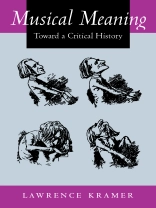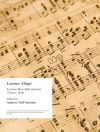How have romantic narratives involving Beethoven’s ‘Moonlight’ Sonata affected how we hear this famous piece? How does John Coltrane’s African American identity affect the way we hear him perform a relatively ‘white’ pop standard like ‘My Favorite Things’? Why does music requiring great virtuosity have different cultural meanings than music that is not particularly virtuosic? From classical to jazz, pop and film music, Musical Meaning uncovers the historical importance of asking about meaning in the lived experience of musical works, styles, and performances. Kramer demonstrates that thinking about music can become a vital means of thinking about general questions of meaning, subjectivity, and value. Lawrence Kramer has been a pivotal figure in the development new resources for understanding music and this accessible and eloquently written book deepens the trajectory of his thinking, boldly arguing that humanistic, not just technical, meaning is a basic force in music history and an indispensable factor in how, where, and when music is heard. First published in 2001, Musical Meaning anticipates many of the musicological topics of today, including race, performance, embodiment, and media. In addition, Kramer explores music itself as a source of understanding via his composition Revenants, revised for this edition and available on the UC Press website.
Tabla de materias
Contents
List of Illustrations
Acknowledgments
Introduction: Sounding Out: Musical Meaning and Modern Experience
1. Hermeneutics and Musical History: A Primer without Rules, an Exercise with Schubert
2. Hands On, Lights Off: The ‘Moonlight’ Sonata and the Birth of Sex at the Piano
3. Beyond Words and Music: An Essay on Songfulness
4. Franz Liszt and the Virtuoso Public Sphere: Sight and Sound in the Rise of Mass Entertainment
5. Rethinking Schumann’s Carnaval: Identity, Meaning, and the Social Order
6. Glottis Envy: The Marx Brothers’ A Night at the Opera
7. Hercules’s Hautboys: Mixed Media and Musical Meaning
8. The Voice of Persephone: Musical Meaning and Mixed Media
9. Powers of Blackness: Jazz and the Blues in Modern Concert Music
10. Long Ride in a Slow Machine: The Alienation Effect from Weill to Shostakovich
11. Chiaroscuro: Coltrane’s American Songbook
12. Ghost Stories: Cultural Memory, Mourning, and the Myth of Originality
Notes
Index
Author’s Note on the CD:
http://www.ucpress.edu/books/pages/9293/9293.cdabs.php
Sobre el autor
Lawrence Kramer is Professor of English and Music at Fordham University and the coeditor of 19th Century Music. He is author of six books, including After the Lovedeath: Sexual Violence and the Making of Culture (California 1997), Classical Music and Postmodern Knowledge (California 1995), and Music as Cultural Practice, 1800–1900 (California 1990).












